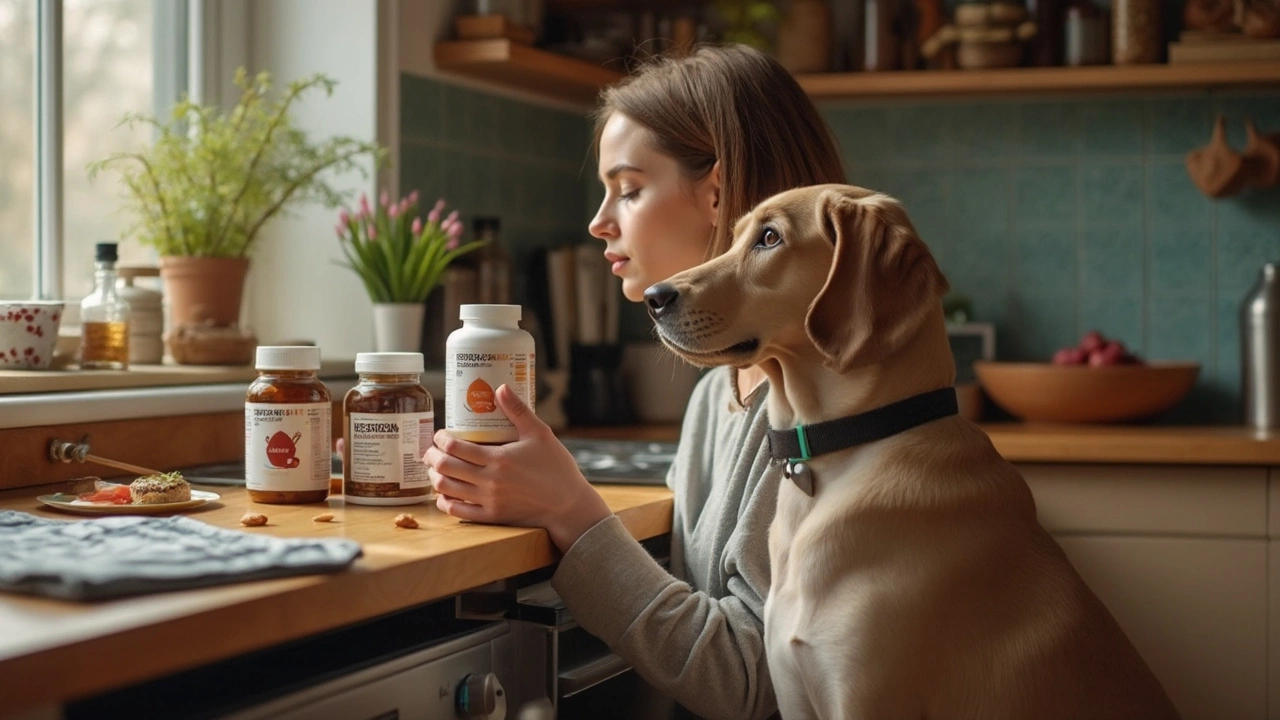Dog Toxicity Guide: What Can Harm Your Pup and How to Prevent It
If you love your dog, you’ll want to know what’s dangerous before it reaches their bowl or backyard. Toxicity isn’t just about meat; it’s hidden in snacks, plants, cleaners, and even everyday meds. Below you’ll find the biggest hazards, signs to watch for, and quick actions to keep your dog safe.
Common Toxic Foods and Treats
Many human foods taste good to dogs, but a few can cause serious illness. Chocolate (especially dark) contains theobromine, which can make a dog vomit, have a rapid heartbeat, or even seize. Grapes and raisins may lead to kidney failure within hours. Onions, garlic, chives damage red blood cells, causing weakness and breathlessness. Xylitol, a sugar substitute in sugar‑free gum and some peanut butter, triggers a massive insulin release – your dog could become hypoglycemic in minutes.
Even small treats like macadamia nuts or certain artificial sweeteners can cause trembling and vomiting. When you’re unsure, treat your dog like a baby: if you wouldn’t eat it, don’t give it to them.
Household Items and Plants That Pose Risks
Cleaning products, pesticides, and even some vitamins are dangerous if licked or chewed. Keep laundry detergent pods locked away – they look like candy. Antifreeze (ethylene glycol) smells sweet to dogs but can cause kidney failure in a single sip. Rodent poison and insecticides are often hidden in corners; a quick sweep with a pet‑safe vacuum helps.
Plants are a sneaky source, too. Lilies, sago palms, and oleander can cause liver failure or heart problems. If you have a garden, research each plant or keep it out of reach.
When you spot a potential toxin, note the product name, amount, and time of exposure. This information speeds up treatment if you need a vet.
What to Do If You Suspect Poisoning
Act fast but stay calm. Call the Pet Poison Helpline (or your local vet) and give them the details you gathered. Do not induce vomiting unless a professional tells you to – some toxins cause more damage on the way back up.
While waiting, you can give your dog a small amount of water if they’re willing, but avoid food or milk. Keep the phone line open and follow instructions step by step.
After an incident, keep a record of what happened. This helps your vet choose the best treatment and prevents future mishaps.
Prevention Tips You Can Start Today
- Store all food, meds, and chemicals on high shelves or in locked cabinets.
- Use pet‑safe cleaning products whenever possible.
- Check ingredient labels for xylitol, chocolate, or artificial sweeteners before sharing treats.
- Know the toxic plants in your garden and replace them with dog‑friendly options like rosemary or marigold.
- Keep a pet first‑aid kit with activated charcoal and a list of emergency contacts.
By making these small changes, you’ll drastically cut the chance of accidental poisoning.
Want deeper dives on specific hazards? Browse our articles tagged toxicity – we’ve covered pineapple safety, ground chicken benefits, and more. Stay informed, keep treats safe, and enjoy a happy, healthy dog life!

Is Vitamin D Toxic to Dogs? What Pet Owners Need to Know
Vitamin D is essential for dogs, but too much of it can pose serious health risks. This article explains how vitamin D toxicity happens, how much is too much, and what signs to watch for in your pup. Learn why accidental overdose is more common than people think and how to keep your dog safe. Get practical tips about supplements and foods containing vitamin D. Know when to call your vet so you can act fast if something goes wrong.
View more